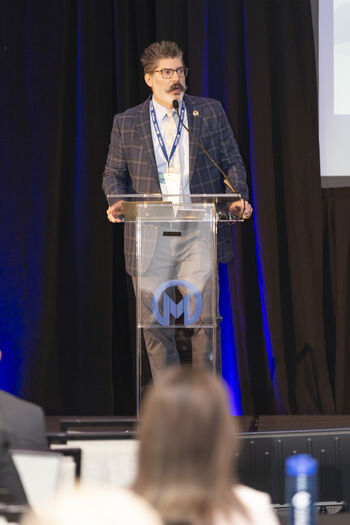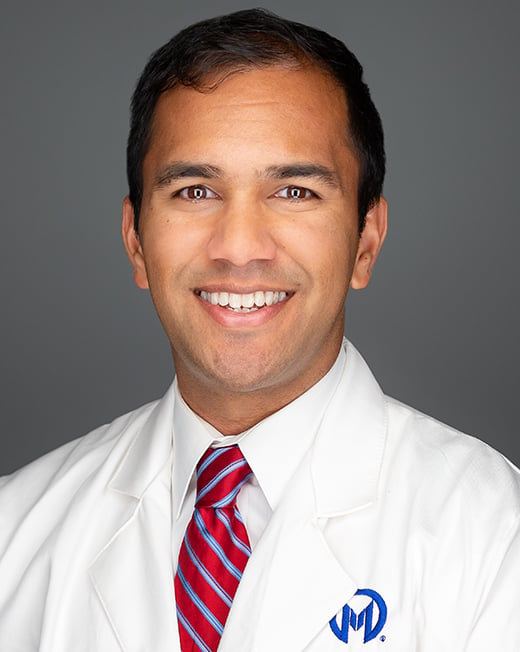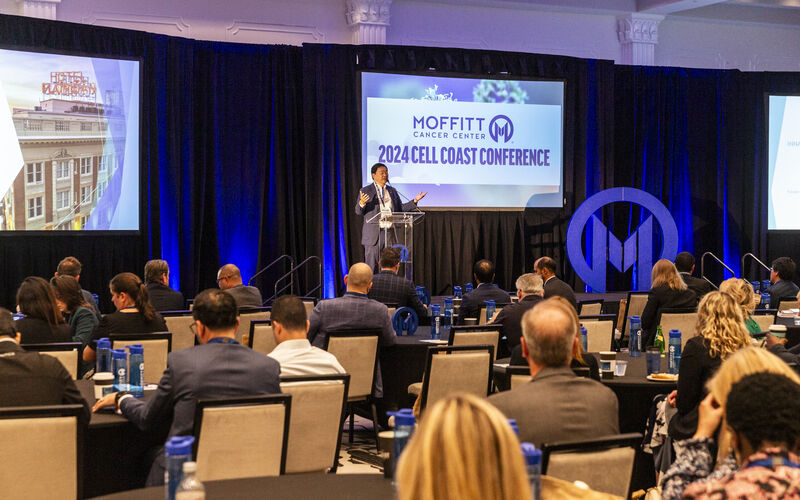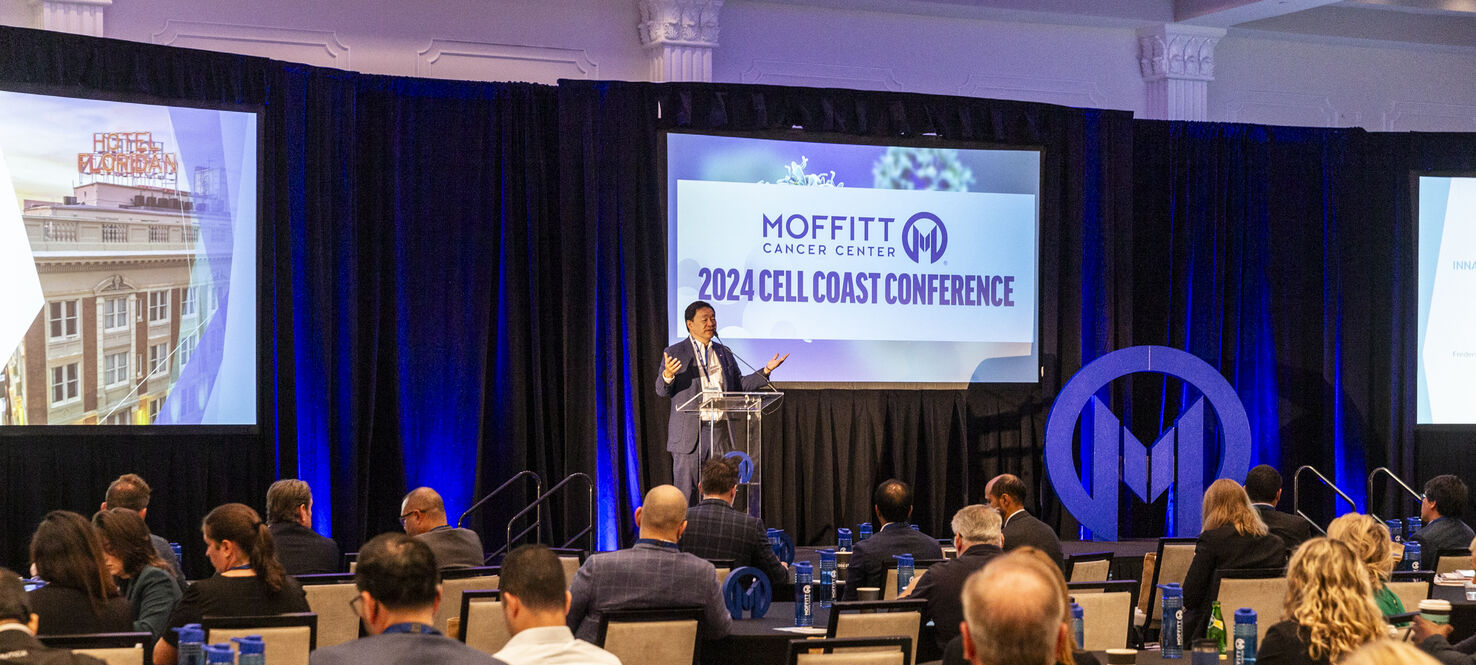Moffitt Hosts Inaugural Cell Coast Conference to Spotlight Breakthroughs in Cellular Immunotherapy
Moffitt Cancer Center’s inaugural Cell Coast Conference brought together leading researchers, clinicians and industry innovators to highlight groundbreaking advances in cellular immunotherapy. The event focused on transformative therapies like chimeric antigen receptor T-cell (CAR T) therapy, tumor-infiltrating lymphocytes (TIL) and T-cell receptor (TCR) therapy – innovations that have proven life-changing for patients whose cancer has progressed despite standard treatments like chemotherapy or stem cell transplantation.

Fred Locke, MD, speaks about advances in CAR T-cell therapy at the Cell Coast Conference. "In practice, we're seeing CAR T therapy deliver unprecedented outcomes for patients that previously had limited options," he said.
CAR T-cell therapy, which involves reprogramming a patient's own T cells to target and destroy cancer cells, has shown remarkable effectiveness in clinical trials, and now studies are examining how it performs outside controlled settings. At the conference, Moffitt physician Doris Hansen, MD, shared real-world data on CAR T-cell therapy’s performance as a newly established standard of care for multiple myeloma. The findings demonstrated that CAR T offers significant benefits, including sustained responses in patients with advanced disease.
“In practice, we’re seeing CAR T therapy deliver unprecedented outcomes for patients that previously had limited options,” said Fred Locke, MD, chair of the Blood and Marrow Transplant and Cellular Immunotherapy Department at Moffitt. “As we continue to address challenges like treatment resistance, this technology holds promise for even broader applications.”
The conference also highlighted TCR therapy, which has recently gained FDA approval for treating synovial sarcoma. Unlike CAR T, which is effective mainly in blood cancers, TCR therapy uses engineered T cells that target cancer cells expressing specific antigens, making it particularly suited for solid tumors.
Adding to the excitement was a spotlight on TIL therapy, which harnesses the natural tumor-fighting ability of a patient’s own immune cells. Already FDA-approved for melanoma, TIL therapy has shown impressive success rates in clinical trials. Researchers at the conference discussed ongoing efforts to expand TIL’s reach to other cancers, notably lung cancer.
“With the approval of TIL therapy for melanoma and now TCR therapy for synovial sarcoma, we are energized more than ever to expand on these successes and have more solid tumor cellular therapy approvals,” said Kedar Kirtane, MD, medical director of solid tumor cell therapy at Moffitt.

For attendees, the conference reinforced the importance of adapting these therapies for broader cancer types and optimizing them for everyday clinical use. Moffitt’s inaugural event highlighted how far cellular immunotherapy has come and the next steps to bring these advancements to more patients.




